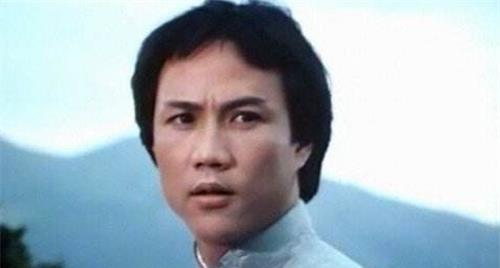Speaking of Huo Yuanjia's story, every Chinese is like a family treasure. This famous patriotic martial artist in modern times founded the Jingwu Gymnastics Association with the belief of "protecting the country with martial arts" all his life. He also bravely fought against the British and Russian Hercules in the ring, defeated dozens of Japanese judo masters in one fell swoop, swept away the name of China's "sick man of East Asia", and greatly boosted the morale of our people.

In the late Qing Dynasty, there were not a few patriotic martial artists like Huo Yuanjia, and Huang Feihong of Foshan, Guangdong Province, was also a generation of haojie. There was also Du Xinwu, a great hero of the North and South, who also joined the alliance established by Sun Yat-sen and threw himself into the vigorous revolutionary wave.
However, I don't know if you have found a phenomenon. In the late Qing Dynasty, when the Western powers were raging, many martial arts masters in our country stood up to defend their families and defend the country. However, in the period of the War of Resistance Against Japanese Aggression, China's folk martial arts masters seemed to evaporate collectively and disappear one by one. Why is this happening? And where have they gone?
To put it bluntly, the root cause is still because of the regularization of war and the stretching of Chinese martial arts. Before the fall of the Qing Dynasty, the modern wars that occurred in our country were nothing more than small-scale wars that broke out during the aggression of the Western powers. Moreover, according to the speed of the Qing government's recognition, these wars basically did not expand, and even did not start. The only few large-scale wars were nothing more than the Taiping Rebellion and the Boxer Rebellion, however, these were primitive cold weapons wars.
This has led to a problem that the common understanding of modern weapons such as guns and artillery by the people of our country is not yet comprehensive. Many people even think that as long as they have good skills, they can fight with these foreign weapons in close hand-to-hand combat. Coupled with the fact that the range, power and accuracy of the early muskets were quite average, hand-to-hand combat did not fall behind. Therefore, the martial arts masters of our country dare to stand up without scruples.
However, by the time of the War of Resistance Against Japanese Aggression, China had already experienced the baptism of many modern wars such as the invasion of China by the Eight-Power Alliance, the Xinhai Revolution, and the Northern Expedition. The majority of the people have long known the power of guns and artillery, coupled with the rapid development of gun performance, close hand-to-hand combat compared with the use of guns is completely tantamount to suicide, which is why the martial arts masters have fallen silent one by one. To put it bluntly, it is still the decline of traditional Chinese martial arts under modern weapons.
In his later years, Du Xinwu, the great hero of the North and South, once told such a case, which vividly illustrated the overstretched martial arts masters during the War of Resistance. Around that time in 1935, Du Xinwu lived in Yuqian Hutong in Beijing. When he saw 3 children on the street being crushed to death by Japanese tanks, Du Xinwu, who was full of grief and anger, wanted to go up and fight with the Japanese army. But in the face of such a behemoth as a tank, even if the kung fu is at its peak, there is nothing to do.
Although in the ancient times of cold weapon combat, and in the late Qing Dynasty, when hot weapons were not yet fully popularized, traditional Chinese martial arts could indeed have a place in the fight against the enemy. However, in the period of the War of Resistance, when hot weapons and modern warfare were fully mature, it was obvious that martial arts could not play any role, and could only be sent to death.
It is not that martial arts masters are not patriotic, but standing up is only a praying mantis arm as a car, and normal people still know that they are sparing their lives, not to mention these martial arts masters.
Although they were not seen on the frontal battlefield, these martial arts masters still burned their residual heat after the battle. They helped the army train soldiers, and they could also serve as bodyguards to defend key figures, such as Du Xinwu, who became the bodyguards of Sun Yat-sen and Song Jiaoren. And the facts have also proved that even if he is as skilled as Du Xinwu, in the face of the sudden pistol assassination, Song Jiaoren still fell in a pool of blood.
This is the reason why during the War of Resistance Against Japanese Aggression, China's martial arts masters no longer shoot, and the truth is silent in the hearts of the Chinese people. Although their hands were dumbfounded by guns and artillery, their patriotism never died. If you ask why this is so, because Chinese martial arts and the Chinese national spirit have been in the same vein for thousands of years.